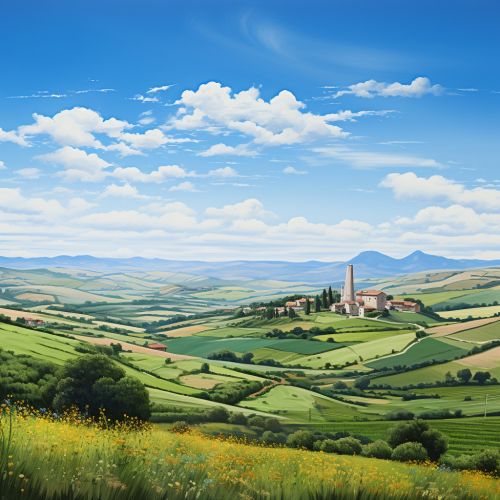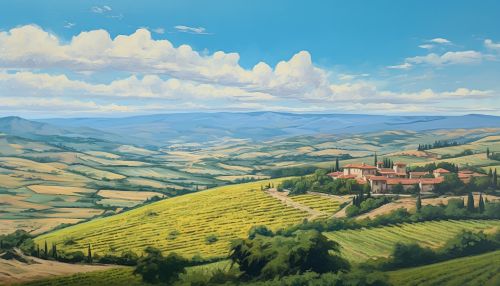Spain
Geography
Spain, officially known as the Kingdom of Spain, is located in Southwestern Europe, on the Iberian Peninsula. It is the second largest country in the European Union (EU) and the fourth largest country in the continent of Europe. Spain is bordered by the Mediterranean Sea to the east and south, France and Andorra to the north, Portugal to the west, and the Atlantic Ocean to the northwest and west. The country's mainland is mountainous, with large high plateaus and major rivers such as the Ebro and the Tagus.


History
Spain's history is marked by diverse cultures and civilizations. The earliest known human settlements in Spain date back to the Paleolithic era. The country was later inhabited by the Celts and the Iberians, followed by the Phoenicians and the Greeks. The Roman Empire conquered the region in 218 BC, and it became one of the Empire's most important regions. After the fall of the Roman Empire, Spain was invaded by various Germanic tribes, including the Visigoths.
In the 8th century, the Moors, Muslim inhabitants of North Africa, invaded Spain and established the Umayyad Caliphate, which lasted until 1492. The period of Moorish rule, particularly in Andalusia, left a significant Islamic influence on Spanish architecture and culture.
The Reconquista, a period of approximately 700 years, saw Christian kingdoms gradually reclaim territory from the Moors. The last Moorish kingdom, Granada, fell in 1492, the same year Christopher Columbus, sponsored by the Catholic Monarchs Ferdinand and Isabella, made his historic voyage to the Americas.
In the 16th and 17th centuries, Spain became one of the world's most powerful nations, with vast colonies in the Americas and Asia. The wealth from these colonies fueled a golden age of arts and literature, known as the Spanish Golden Age.
The 20th century was marked by civil war and dictatorship. The Spanish Civil War (1936-1939) ended with the victory of Francisco Franco, who ruled as a dictator until his death in 1975. After Franco's death, Spain transitioned to democracy and a constitutional monarchy under King Juan Carlos I.
Politics
Spain is a parliamentary constitutional monarchy, with a hereditary monarch and a bicameral parliament, the Cortes Generales. The executive branch consists of the President of the Government, or Prime Minister, and the Council of Ministers. The legislative branch is made up of the Congress of Deputies and the Senate. The judiciary is independent of the executive and the legislature, with the Supreme Court being the highest court in Spain.
Spain is divided into 17 autonomous communities, each with its own government and parliament. These communities are further divided into provinces. Spain is a member of the United Nations, the European Union, NATO, and many other international organizations.
Economy
Spain has the 14th largest economy in the world and the 5th largest in the European Union. It is a high-income, developed country with a very high standard of living. The Spanish economy is diversified, with key sectors including manufacturing, services, and agriculture. Spain is one of the world's leading tourist destinations, with tourism accounting for a significant portion of the country's economy.
Spain is also a major producer of renewable energy, particularly wind and solar power. The country is known for its commitment to environmental sustainability and has made significant strides in reducing greenhouse gas emissions.
Culture
Spanish culture is rich and diverse, with influences from many civilizations that have inhabited the peninsula. Spain is known for its art, architecture, literature, and music. The country has produced famous artists such as Pablo Picasso, Salvador Dali, and Francisco Goya, and architects like Antoni Gaudi and Santiago Calatrava.
Spanish literature has a significant global impact, with renowned authors like Miguel de Cervantes, author of "Don Quixote", and contemporary writers like Carlos Ruiz Zafon.
Spain is famous for its music and dance forms, particularly flamenco. The country is also known for its festivals, such as the Running of the Bulls in Pamplona and La Tomatina in Buñol.
Spanish cuisine is popular worldwide, with dishes like paella, tapas, and gazpacho. Spain is also one of the world's top wine producers, with regions like Rioja and Ribera del Duero internationally recognized for their wines.
